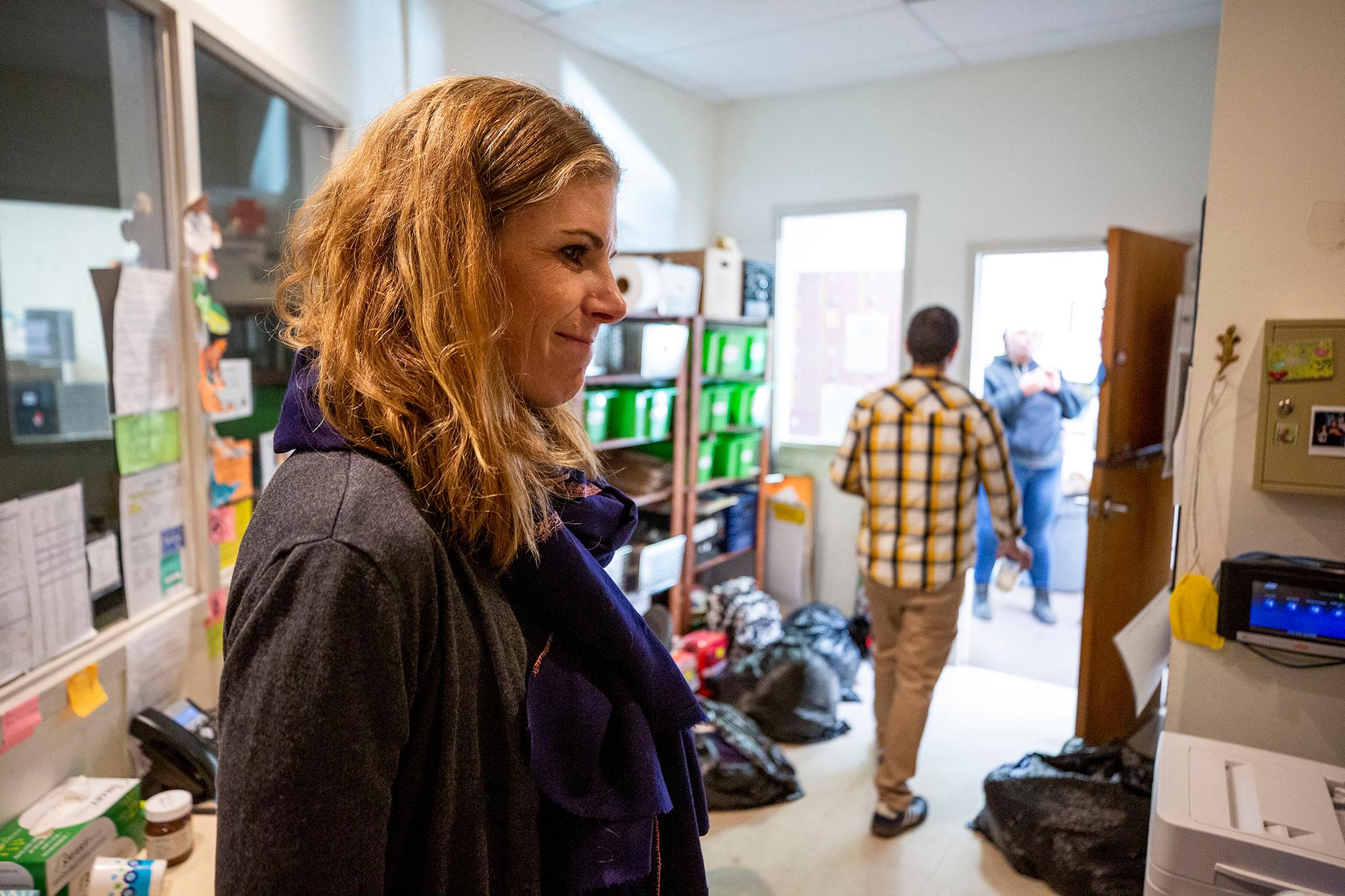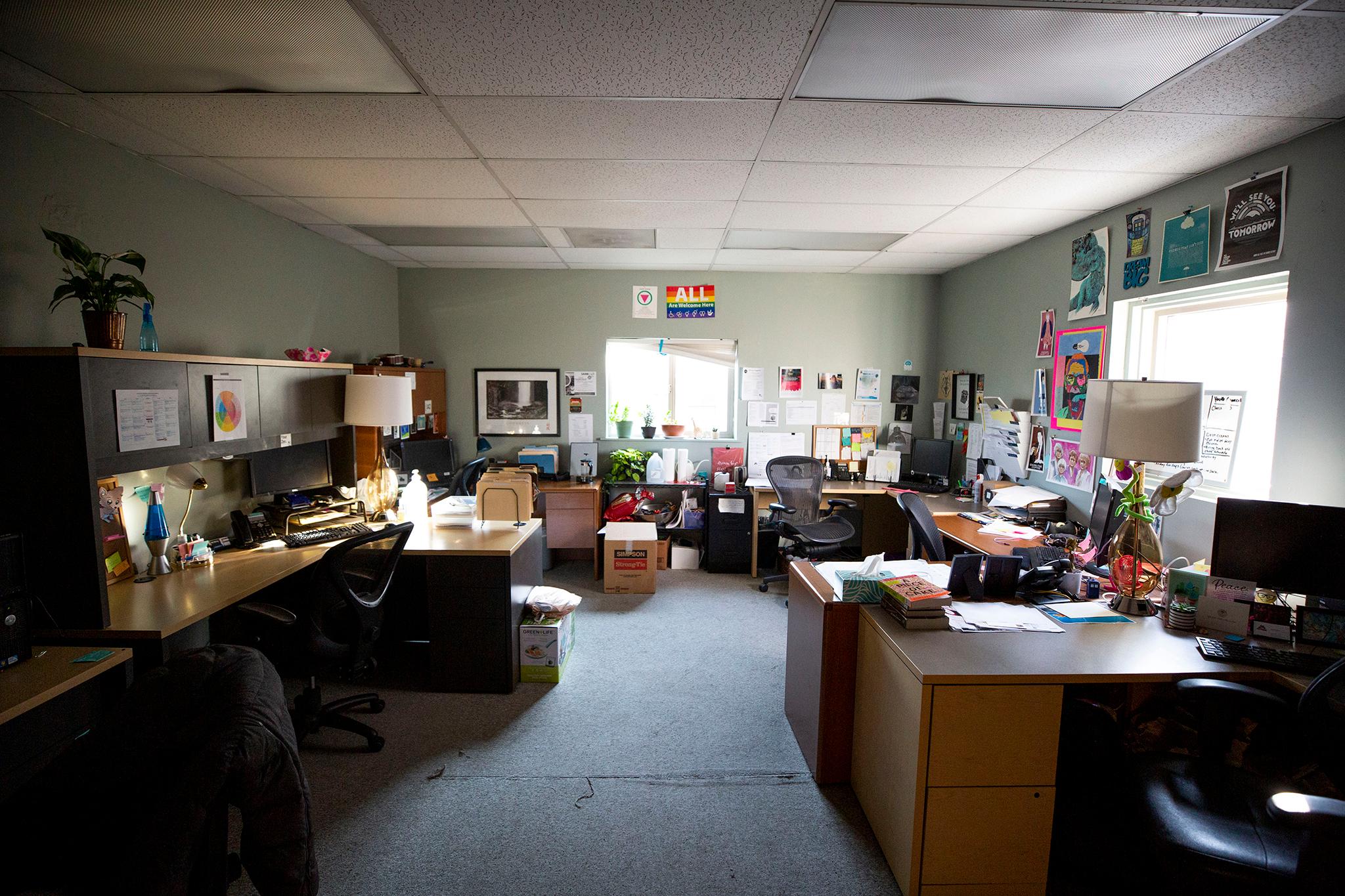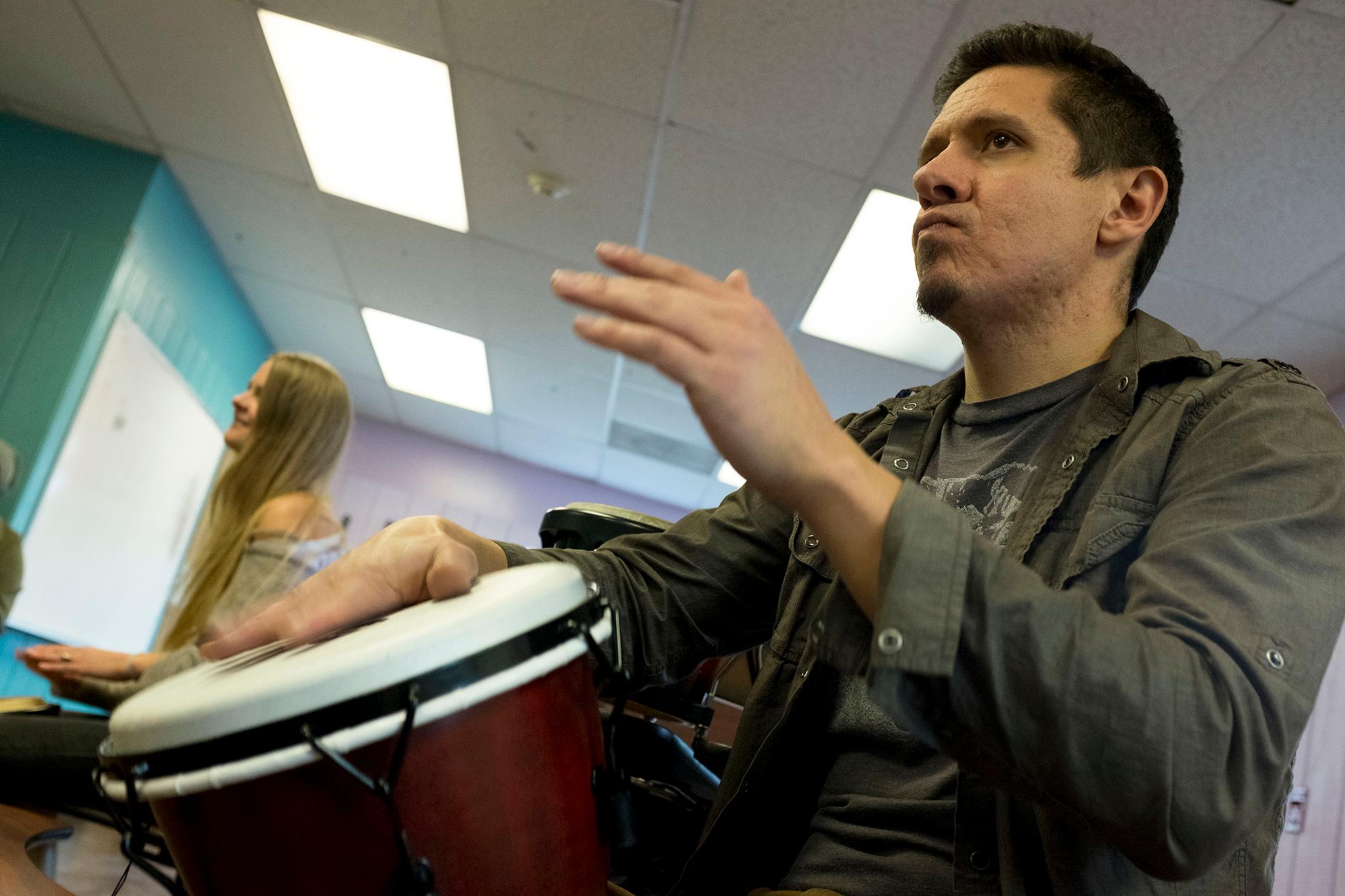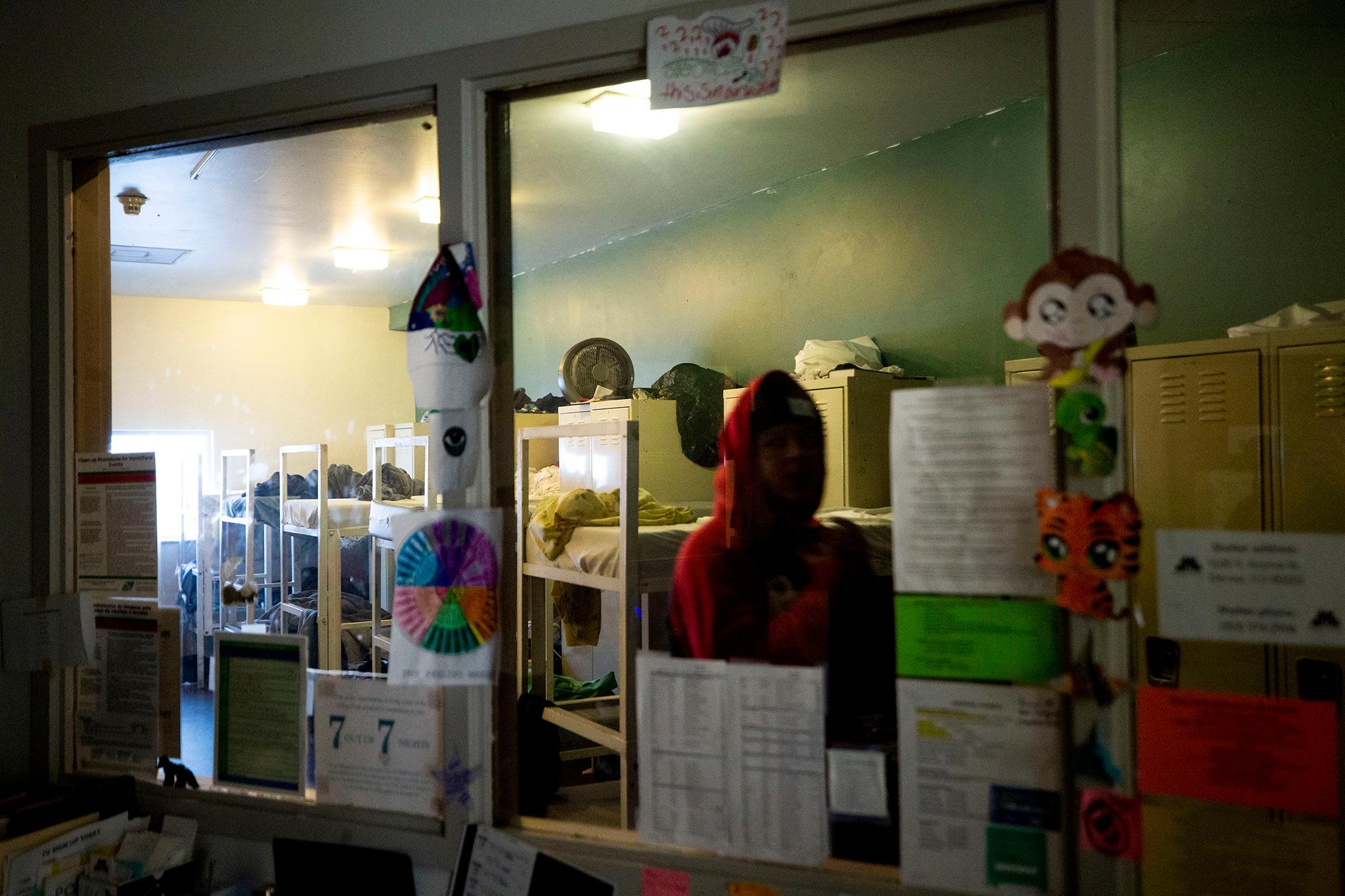Earlier this year, Mayor Michael Hancock announced the city would spend some $10 million over the next three years to improve shelters, including offering people experiencing homelessness more places to escape from the streets and get support during the day.
The CEO of Urban Peak says she'll soon be able to show what a better shelter can look like. The city's only licensed shelter for young people experiencing homelessness learned over the summer it would get about $1 million of the improvement money. Contracts are being finalized and Christina Carlson, who has headed Urban Peak since 2017, hopes to start spending next month.

Let's start with what Carlson has to work with. Her shelter just off Broadway on Acoma Street in Overland was built in 1998. The low-slung building with a pitched metal roof and an exterior of red brick and beige stucco looks like a suburban insurance office. It's equipped with a clinic staffed by a medical assistant and two part-time, volunteer doctors. The two bathrooms each have two showers. Volunteers and staff cook three meals a day in an industrial kitchen at one end of a dining room the size of a basketball court. When the people between the ages of 15 and 20 who need shelter outnumber the shelter's 40 bunk beds, mattresses are spread out on the dining room floor. Some guests prefer to sleep in the dining room even when bunks are available to escape the chaos of a dorm full of teens.
Days can be spent in a small classroom equipped with computers for working on resumes, across a desk from a caseworker in a large shared office, or relaxing in front of a TV screen.

A year and a half ago, Carlson invested in lockers in the dorms, and her shelter also has a storage closet. People experiencing homeless need and often lack a secure place for their belongings.
Carlson also bought new mattresses when she got the lockers.
"What we used to have was just, like, yoga mats," Carlson said.
The shelter is full most nights. According to the annual point in time survey of homelessness, widely viewed as a significant undercount, nearly 200 unaccompanied people under the age of 25 were experiencing homelessness in Denver on a typical January night this year.
"We know that there's an enormous need for shelter," Carlson said.
During the March "bomb cyclone" that brought high winds and heavy snow to Denver, the Urban Peak day shelter near downtown on Stout Street stayed open overnight. More than 40 people slept there during that emergency.
"That was, I think, telling of the need," Carlson said.
Her shelter on Acoma is open 24 hours a day, while most of the city's shelters for adults are open only overnight. Once an Urban Peak guest gets a bed, he or she can stay until moving on to stable housing, perhaps back with relatives, or decide to leave. Urban Peak does not require, as many adult shelters do, that people line up every night for a bed, then return to line up again the next night.
"I think in many ways, the adult shelter system will start to look more like what Urban Peak looks like" now, Carlson said.
The Salvation Army's Crossroads shelter in Five Points has beds and small rooms that can be rented long-term, in addition to the mats adult men line up to secure for a night. The homelessness nonprofit St. Francis Center plans to expand the employment center it's run in a Cheesman Park church to include boarding-house style rooms.
While Urban Peak's shelter is open 24-7, young people are expected to be out, preferably at school or work, during the day. Carlson said some of the new money will be spent to hire more staffers so that young people who don't have anywhere else to go during the day can spend time productively at the shelter, perhaps learning how to cook on a budget or relax in a drum circle.

"A big part of the extra staffing is extra programming," Carlson said.
The new money also will mean changes on Stout Street. Changes planned for Urban Peak's day shelter include longer hours, 10 each day instead of three. A kitchen is to be built and staffed with a manager so young people will be able to get three meals a day downtown. More staff also are on the way, allowing, for example, more trips with young people to the Department of Motor Vehicles to get identification cards, a document crucial to job-hunting that can take months and repeated visits to secure.
Carlson also plans to hire two specialized navigators to help young people find housing, a task case managers have been handling. Urban Peak case managers now include other specialists, including staff who focus on young people transitioning out of foster care or who are parents or pregnant.
At both Stout and Acoma, security cameras will be added and other measures will be taken to improve safety. Adults sometimes prey on young people experiencing homelessness. Human traffickers offer what looks like acceptance to young people who have been kicked out -- perhaps because their parents disapproved of their sexual orientation -- moved from foster home to foster home, or, as Carlson puts it, have been "made to feel like people don't have time for them."
"Homeless youth are the most vulnerable population," she said.
To support that fragile group, Carlson has ambitions beyond the changes -- important as she sees them to be -- that the new city money will usher in at her overnight shelter on Acoma Street and day shelter on Stout Street.
Urban Peak also has three apartment buildings in which it can place young people who are ready to live on their own and a thrift shop where young people can gain work experience. Carlson envisions one day bringing those elements as well as a shelter together at a new complex on Acoma.
Carlson will be turning more attention to her dream of an Urban Peak campus now that the changes using new city money are ready to be rolled out.
What she describes sounds like what The Delores Project shelter recently built for adult women and transgender people. The Delores Project campus completed in West Colfax earlier this year includes a 60-bed shelter, 35 apartments for people exiting homelessness who receive mental health services, and 95 units of permanent housing in an apartment building set aside for households earning no more than half the area median income.
Carlson said she is an optimist. She notes, for example, that the just over $10 million for shelter improvements was part of a $15.7 million fund the city put together with public money as well as donations from the business and philanthropic community shortly after voters rejected a measure that would have overturned Denver's urban camping ban. A third of the $15.7 million was earmarked for more vouchers to move people into permanent housing. That public-private agreement on goals is significant, Carlson said.
She also was encouraged by the creation of a new city housing department that brings together staff who once worked for different agencies, and by the regular meetings the heads of the city's major service providers began holding in recent years.
Across Denver, Carlson said she sees a growing understanding of the "need for continuation and collaboration."
"Homelessness is such a complicated, challenging issue," she said. "We have to disrupt to make that significant change."














